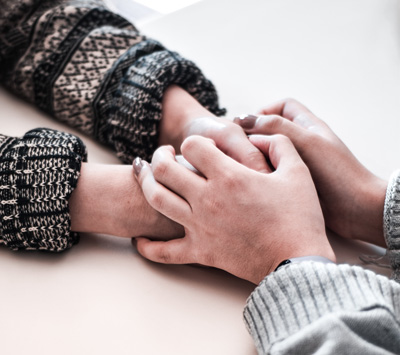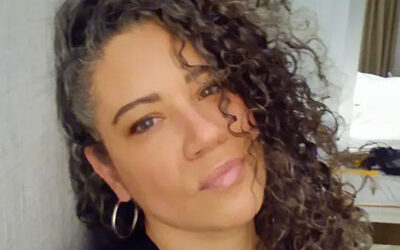
I seem to be in a period of getting deeply schooled in navigating rupture.
And unsurprisingly, this is the subject that people come to me most often to work on:
How to move through disconnection in their relationships and come out on the other side with their heart — and possibly their relationship — more intact.
These are some of my notes from the field:
Where there’s rupture in a relationship there is loss of attunement.
And without attunement — loving, responsive (as opposed to reactive) presence — there’s little chance for repair.
What usually takes us out of attunement with someone else is a loss of self-attunement.
Self-attunement is the ground of differentiation.
To paraphrase the late Dr. David Schnarch, differentiation is the emotional capacity:
• to know who we are (self-validating);
• to hold our own anxiety or distress without requiring another to resolve it through their actions or feeling state (self-soothing);
• to be in the presence of another’s anxiety or distress without taking it on or becoming distressed ourselves (self-holding);
• to be able to tolerate discomfort for growth (self-confronting).
In other words, differentiation is the felt-awareness of where we end and someone else begins.
Where there’s lost self-attunement and an absence of differentiation there is often emotional fusion.
Fusion is the glue that makes ruptures feel (or become) irreparable.
Our need to control the narrative in a rupture is a reflection of our current capacity to look at our part in the relationships we co-create.
I see this again and again, in myself and in the women and men who work with me:
The more we talk about the other person, the more we focus on what the other person is/isn’t doing, the less we can see our part in the rupture.
And when we can’t see our participation in the disconnection we miss the ONE place we can exert any benevolent, heart-led influence.
Humility is the name of the game in healing ruptures.
To heal rupture or disconnection, no matter how entrenched or long-standing, we have to be more committed to our togetherness than to our separateness.
Each of us must take 100% responsibility for what we are experiencing together. At the same time. Insisting that we will only give when the other gives only reinforces our impasse.
Self-righteousness and self-recrimination are two sides of the same coin of collapsed differentiation and/or impaired (self-) attunement.
Both seek to assign blame in absolute terms: they’re wrong or we’re wrong.
Self-righteousness justifies all manner of emotional parsimony toward another, while self-recrimination justifies all manner of emotional parsimony toward ourselves.
Both reflect an inability to hold the inherent paradox of love and connection: that we are two separate beings navigating an experience of togetherness.
Neither state is an accurate reflection of what happens in relationship-disconnection.
It is rarely the case that disconnection is entirely caused by one person. And even when it is, if we stick to our righteous indignation or our self-pitying self-flagellation, we lose the opportunity to understand how we it is we were a ‘yes’ to this kind of relational dynamic in the first place.
How we show up in relational ruptures is a reflection of the best we have to offer in the good times.
Ruptures reveal our capacity to extend ourselves for the good of a relationship.
They reveal where we tend toward over-giving or under-giving.
If intimacy is the space between us, ruptures reveal how valuable we believe that space is, our misgivings about intimacy, and just how far we we are willing to go to preserve or heal it.
When gestures of good will, or grace as I think of it, become repugnant, what we’re really feeding the intimacy-space is our contempt.
And if there’s contempt in the rough times, you can be sure it’s being silently nursed in the good times. Contempt doesn’t come out of nowhere.
Rupture, conflict, disconnection — whatever we want to call it — is an essential part of relationships. Of any kind, be it with a lover, parent, child, or friend.
Disconnection is often rooted in an attempt to seek connection — but in ways that no longer work.
To overcome disconnection — whether together or apart — we may have to act our way into a new feeling, as opposed to feeling a certain way before we will act.
We can act “loving” — towards another or ourselves — without feeling loving.
Sometimes this is by-passing.
And sometimes this is the requirement of loving well, to extend ourselves toward another even when we’re not ‘feeling it’.
Most of our growth happens when we’re not feeling it and show up anyway.










I don’t know I think I disagree with your final point there. I don’t like it when people “show up” for me when they’re not feeling it, because they’re not genuinely showing up and I can feel that. It feels fake and I don’t want anyone to have to fake anything for me. If they needed 2 days or 2 months or 2 years to get to that place where they’re really feeling it, and then show up for me with that energy, I’d prefer that, no matter how long it takes for them to get there, than to have a fake apology and try to move forward on false pretenses.
I really enjoyed and agree with every thing else you said though, thanks for sharing.